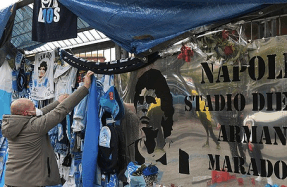Weekend in Amsterdam

I’ve spent most of the coronavirus lockdown in a Norwegian mountain town, where a handful of local businesses were closed briefly but where social distancing has been perfunctory, masks have been conspicuous by their absence, and not one person has succumbed to the virus.
Still, travel has been a no-no, giving me an acute case of stir-craziness. So when flying to certain parts of Europe became possible and Amsterdam opened up—to a degree, anyway—I booked a weekend trip and got my first taste of what this thing has been like for less fortunate big-city folk.
Why Amsterdam? I lived here briefly in the late 1990s, and it’s been my primary getaway ever since. While providing a change of mood and pace and scenery—and, not least, language—it also feels like home. Every time I come here, I’m welcomed like an old friend by hoteliers, waiters, and barmen. At a few favorite watering holes, I’ve watched the regulars grow old.
Donning a mask for the flight over—KLM required it—doesn’t seem like a big price to pay. But it proves unsettling. It’s a memento mori. Also, on a muggy summer day, the thing gets dank and stinky. (Not to mention that it’s weird to be masked in public after years of railing against the hijab.)
To be sure, like so many Covid-related rules, KLM’s mask guidelines are less than entirely logical. First the crew impresses upon us the life-and-death urgency of keeping the mondkapjes firmly in place throughout the flight; then they hand out lunch, and suddenly it’s okay to unmask. On the train into Amsterdam, covering up is again obligatory. And when I step onto a tram, the ticket lady, encased in plexiglass (but herself maskless) barks at me: “Mask!”
She isn’t emotional only about face covering. When a German passenger addresses her in halting English, she shoots back, outraged: “I speak German!”
No surprise there. The Dutch are fiercely proud of being multilingual. A Dutch friend once told me a joke: “What do you call someone who speaks four languages? A Dutchman. What do you call someone who speaks one language? A Frenchman. What do you call someone who speaks no languages? An American.”
Twenty-one years ago, when I lived here, I had a Canadian-American friend who’d majored in French and mastered Dutch after moving to the Netherlands. But he couldn’t get hired as a KLM flight attendant because his German was only so-so. Bottom line: Dutch service jobs have more rigorous language requirements than American humanities doctorates.
As for me, I can read Dutch well enough, but my conversational skills? Meh. How could it be otherwise? Read and study though you may, it’s almost impossible to get much real-life practice: at least in the big cities, if you even try to communicate in Dutch, your interlocutor will switch instantly to English, confident that you’re making an empty gesture. If you do manage to complete a grammatically correct sentence, their eyes will pop out. “You know Dutch!” I’ve been told by shocked locals more than once after pulling off a simple declarative statement.
Walking around Amsterdam, I do know enough Dutch to be able to read the closing signs on the stores. On Kalverstraat, the main shopping street, I lose track of the number of businesses that have gone belly-up since I was here in February. But even all these closures don’t explain my growing sense that something is terribly and sadly different. (And I’m not just talking about the old hippie standing in the middle of Dam Square with a big sign reading: “As long as systematic racism exists, someone will stand here.”)
An old song lyric goes: “You look the same, / you’re about the same, / but my heart says no, / no, you’re not the same.” At a bar, a lifelong Amsterdammer tells me, plaintively, that he loves his hometown but that it just doesn’t feel like itself anymore, and will, he fears, never be the same. If he’s right, his lament doesn’t just apply to Amsterdam. It’s true of everywhere, isn’t it—if it is true?
At Schipol Airport for my flight back to Oslo, the check-in lady—apparently taking me for a fellow countryman—speaks to me in Dutch, and I compliantly answer the usual questions (“Any bags to check?”) with ja or nee. Later, there’s a gate change, and I explain to a confused Spanish woman that the new puerta de embarque is now C-once. I make a quick call home, speaking in both English and Norwegian. Voilà—four languages! Take that, Dutchies!
City Journal is a publication of the Manhattan Institute for Policy Research (MI), a leading free-market think tank. Are you interested in supporting the magazine? As a 501(c)(3) nonprofit, donations in support of MI and City Journal are fully tax-deductible as provided by law (EIN #13-2912529). SUPPORT






